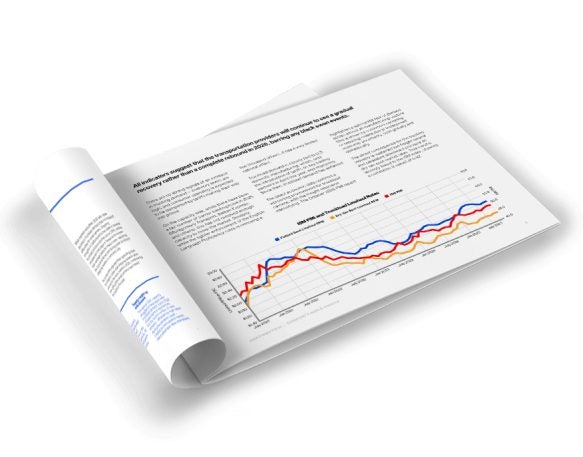In today’s fast-paced economy, having a well-defined freight shipping strategy is essential for maintaining a competitive edge. Whether you are a seasoned shipper or are just starting out in the industry, understanding the key elements of optimizing transportation networks for a successful freight shipping strategy is crucial.
This guide will walk you through the process of developing an effective freight shipping strategy, help you understand why it’s so important to have one, and equip you with the tools and resources you need to find long-term success as a shipper.
What is freight shipping?
Newcomers to the industry may find themselves wondering: What is freight shipping? Simply put, it’s the process of transporting freight and various goods from one point to another, whether it’s via a truck, train, ship, or plane.
Shippers, the people or companies who need freight moved, can do so in two primary ways. Most shippers directly match with carriers or specific loads and contract them to transport cargo. However, shippers sometimes rely on LSPs or brokers to facilitate transportation with carriers.
The most common shipping method is ground freight, where cargo is shipped via truck or train. This form of transportation has many benefits, such as being cost-effective and widely available. The DAT load board is the perfect example of this availability: as the largest truckload freight shipping marketplace in North America, it always has a wide variety of opportunities for every member of the freight industry, so shippers can easily find carriers and owner-operators at the best rates who can help them reliably transport goods.
Why you need a freight shipping strategy
Before delving into the intricacies of creating a freight shipping strategy, it’s important to understand why having that strategy in place is so crucial for shippers. A well-defined strategy provides shippers with predictability and flexibility in their operations, allowing them to effectively source capacity, assess bids, manage budgets, and overall make informed decisions for their business. By having a strategy in place, shippers can mitigate risks, optimize their transportation processes, and ensure smooth operations in the face of changing market conditions.
Paired with a reliable freight analytics and market intelligence platform, the following best practices help shippers take the uncertainty out of transportation, supply chain planning, and logistics:
1. Find your freight partners and build strong relationships
One of the fundamental aspects of a successful freight shipping strategy is building strong relationships with reliable freight partners.
Expanding and diversifying your carrier network is crucial for optimizing your shipping budget and ensuring the resilience and adaptability of your supply chains. By doing so, you can access a wider range of services, operational areas, carrier specialties, and, most importantly, competitive rates. This holds particular value for shippers who utilize different transportation modes (both full truckload and LTL) and ship to multiple locations.
Shippers who solely focus on a limited number of incumbent carriers ultimately miss out on a multitude of shipping options and competitive rates. Through carrier diversification, you will have more choices, reap greater benefits, and ultimately save more money.
While traditional means of finding partners still hold value, digital networks have revolutionized the industry by providing efficient and convenient platforms for connecting shippers with carriers. For instance, DAT Carrier Select, the newest addition to the DAT iQ platform, enables shippers to identify network optimization opportunities and alternative carriers for the lanes that matter most to the bottom line.
2. Balance contract and spot freight
In the world of freight transportation shipping, the balance between contract and spot freight is a crucial factor in creating a successful shipping strategy. Contract freight involves long-term agreements between shippers and carriers, providing stability, predictable capacity, and, often, more favorable rates. Shippers typically establish contracts with carriers based on specific lanes and shipping requirements. These contracts ensure a consistent flow of goods and establish a reliable partnership between shippers and carriers.
However, even with well-established contracts in place, there are instances when spot freight becomes necessary. Spot freight is a way to meet immediate shipping needs, solve routing guide failures, or fill gaps in capacity that cannot be met through existing contract agreements. Unforeseen circumstances, sudden spikes in demand, or unexpected disruptions in the supply chain may require shippers to seek additional carriers quickly. That’s when the spot market can prove invaluable.
There’s no doubt that spot freight serves as a reliable contingency plan, but shippers should still establish robust and mutually beneficial contract freight agreements with carriers. By nurturing strong relationships with contracted carriers, shippers can develop a reliable transportation network that meets their ongoing shipping needs while still having the flexibility to tap into the spot market when necessary. A successful freight strategy is all about finding the right balance, adapting to market conditions, and leveraging the tools and resources available, such as DAT’s load board and analytics platforms, to make informed decisions and streamline operations.
3. Stay on top of market trends
In the dynamic world of freight shipping, staying on top of market trends is of paramount importance for shippers seeking sustained success. By keeping a pulse on the ever-changing market conditions, shippers can make informed decisions and plan strategically.
Keeping a pulse on market trends allows shippers to anticipate and adapt to shifts in supply and demand. By analyzing historical data and monitoring real-time market indicators, shippers can identify patterns, forecast fluctuations, and adjust their shipping strategies accordingly. This proactive approach helps shippers optimize their operations, minimize costs, and ensure efficient utilization of resources like fuel.
Market trends also impact pricing dynamics in the freight shipping industry. By closely monitoring rate fluctuations and industry benchmarks, shippers can negotiate with carriers more effectively. Armed with the knowledge of prevailing market rates, shippers can engage in informed discussions, secure competitive pricing, and establish mutually beneficial agreements. This not only improves the shippers’ bottom line but also strengthens their partnerships with carriers.
Furthermore, staying informed about market trends empowers shippers to navigate disruptions and unforeseen circumstances effectively. Rapid changes in global events, natural disasters, or regulatory shifts can have a significant impact on the shipping landscape. By closely monitoring market trends, shippers can quickly adapt their strategies, reroute shipments, or secure alternative capacity to mitigate risks and maintain continuity in their operations.
One valuable tool that can assist shippers in staying informed is DAT RateView. With its comprehensive analytics, RateView provides shippers with valuable insights into current market rates and trends. By leveraging RateView, shippers can access historical and real-time rate data, enabling them to analyze market dynamics and make data-driven decisions. This powerful resource enhances their ability to negotiate contracts, optimize pricing strategies, and identify opportunities for cost savings.
DAT iQ solutions help shippers create a successful freight shipping strategy
Clearly, creating a successful freight strategy takes work, but the return is worth the effort. To ensure your freight shipping strategy is the best it can be, DAT Freight & Analytics offers a range of solutions that equip shippers with the valuable insights and analysis capabilities to optimize various aspects of the shipping process:
- DAT iQ Rate Analytics Solutions: Gain visibility into past, present, and future spot and contract market rates for strategic sourcing, planning, and cost management. With $1 trillion in transactional data, DAT iQ offers shippers the deepest, broadest transportation rate data.
- DAT iQ Network Analytics Solutions: DAT offers extensive lane and carrier insights to help shippers proactively mitigate routing guide failure, secure reliable capacity, and build resilience with a diversified portfolio. Shippers can efficiently manage planning and optimization to navigate ever-changing market conditions and macroeconomic challenges.
- DAT iQ Analytics Services: Leverage industry experts and data analysts to optimize transportation operations with expert consulting, integration support, and data services. Custom solutions can enable shippers to take control of their data and level up their shipping operations.
By leveraging these solutions, shippers can gain a competitive advantage in the freight shipping industry. Whether it’s finding suitable carriers, analyzing rate data, or optimizing transportation networks, DAT’s tools provide valuable support for shippers in creating successful freight shipping strategies.
Let DAT help you create a successful freight shipping strategy
Creating a successful freight shipping strategy is a complex task that requires careful planning and execution, but it can prove very rewarding when done right. DAT, with its extensive range of tools and resources, is committed to helping shippers navigate the intricacies of the industry and optimize their transportation networks. Whether it’s finding reliable carriers, balancing contract and spot freight, staying on top of market trends, or utilizing powerful analytics tools, DAT empowers shippers to take charge of their shipping strategies and achieve long-term success.
Ready to take your freight shipping strategy to the next level? Discover how DAT iQ shipper solutions can help you succeed.
Build a stronger freight strategy with DAT
Create an effective freight shipping strategy with the help of accurate and robust market intelligence based on a database of $1 trillion in market transactions. Learn why over 1,300 shippers trust DAT iQ to transform their shipping operations by visiting DAT iQ Products.




